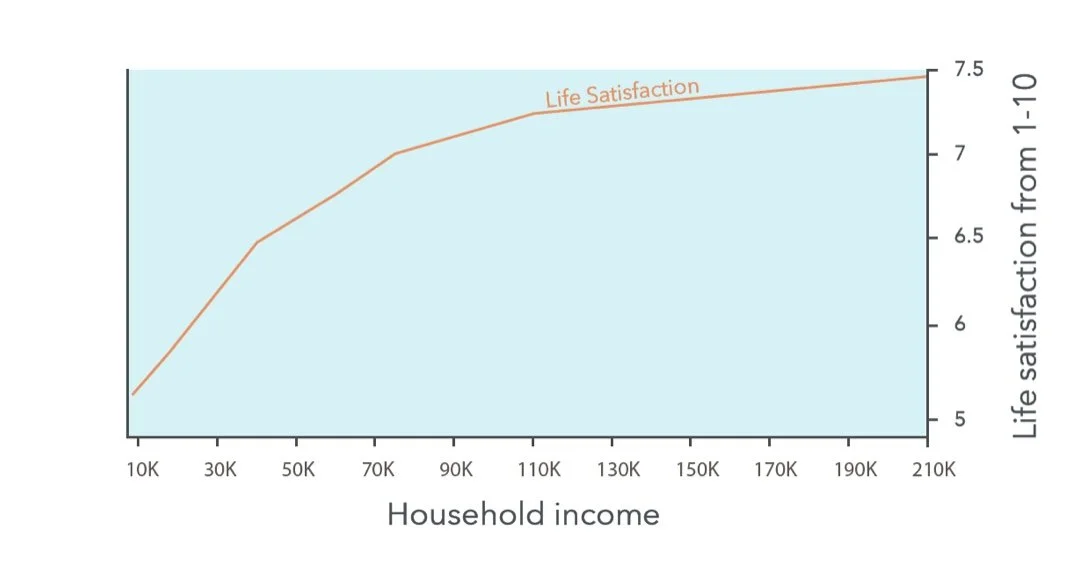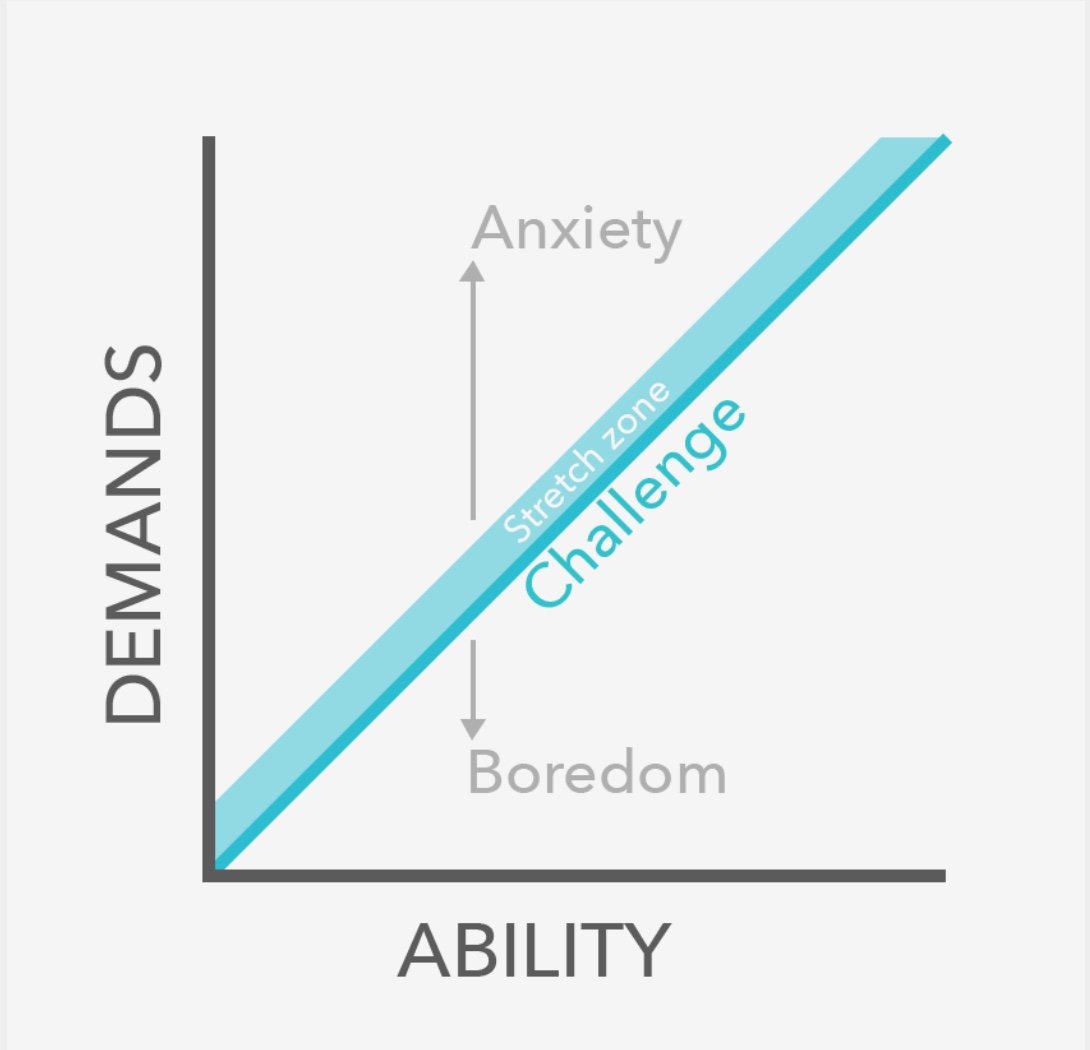
What Makes For A Dream Job?
Written October 22 2024
Est. 15-20 minute read
This article draws heavily from 80,000 Hours (see their up-to-date entry here).
60 studies were reviewed. Here’s what was found.
As Christians, we often seek a career that’s both enjoyable and meaningful, but what does that truly look like in light of our faith?
Many believe they need to discover their passion in a moment of divine insight or that a dream job should be easy and well-paid. However, after reviewing decades of research on what makes life and work fulfilling, these ideas don’t hold up. The Bible itself emphasises purpose over comfort or wealth.
In fact, following your passion can sometimes mislead you. Steve Jobs, for example, was initially passionate about zen buddhism before entering technology. Similarly, Maya Angelou worked as a calypso dancer before becoming a celebrated poet and civil rights activist. Their journeys remind us that passions can evolve over time.
Instead, the key to a fulfilling career is finding work that glorifies God by helping others and is personally meaningful. Scripture encourages us to “work heartily, as for the Lord” (Colossians 3:23), and by getting good at what serves His purpose, we can develop true passion and satisfaction along the way. Rather than waiting for a perfect career to reveal itself, we can trust that God leads us as we pursue work that aligns with His calling for us.
Where we go wrong
The usual way people try to work out their dream job is to imagine different jobs and think about how satisfying they seem. Or they think about times they’ve felt fulfilled in the past and self-reflect about what matters most to them.
If this were a normal career guide, we’d start by getting you to write out a list of what you most want from a job, like “working outdoors” and “working with ambitious people.” The bestselling career advice book of all time, What Color is Your Parachute, recommends exactly this. The hope is that, deep down, people know what they really want.
However, research shows that although self-reflection is useful, it only goes so far.
You can probably think of times in your own life when you were excited about a holiday or party — but when it actually happened, it was just OK. In the last few decades, research has shown that this is common: we’re not always great at predicting what will make us most happy, and we don’t realise how bad we are.
It turns out we’re even bad at remembering how satisfying different experiences were. One well-established mistake is that we often judge experiences mainly by their endings: if you missed your flight on the last day of an enjoyable holiday, you’ll probably remember the holiday as bad.
The fact that we often judge the pleasure of an experience by its ending can cause us to make some curious choices.
Prof Dan Gilbert, Stumbling on Happiness
This means we can’t just trust our intuitions; we need a more systematic way of working out which job is best for us.
The same research that proves how bad we are at self-reflection can help us make more informed choices. We now have three decades of research into positive psychology, as well as decades of research into motivation and job satisfaction. We’ll summarise the main lessons of this research and explain what it means for finding a fulfilling job.
Two overrated goals for a fulfilling career
People often imagine that a dream job is well paid and easy.
In 2015, one of the leading job rankings in the US, provided by CareerCast, rated jobs on the following criteria:
Is it highly paid?
Is it going to be highly paid in the future?
Is it stressful?
Is the working environment unpleasant?
Based on this, the best job was: actuary. That is, someone who uses statistics to measure and manage risks, often in the insurance industry.
It’s true that actuaries are more satisfied with their jobs than average, but they’re not among the most satisfied. Only 36% say their work is meaningful, so being an actuary isn’t a particularly fulfilling career.
So the CareerCast list isn’t capturing everything. In fact, the evidence suggests that money and avoiding stress aren’t that important.
Money makes you happier, but only a little
It’s a cliche that “you can’t buy happiness,” but at the same time, better pay is people’s top priority when looking for new jobs. Moreover, when people are asked what would most improve the quality of their lives, the most common answer is more money.
What’s going on here? Which side is right?
A lot of the research on this question is remarkably low quality. But several major studies in economics offer more clarity. 80,000 Hours reviewed the best studies available, and the truth turns out to lie in the middle: money does make you happy, but only a little.
For instance, here are the findings from a huge survey in the United States in 2010:
High income improves evaluation of life but not emotional well-being, D. Kahneman and A. Deaton, 2010
People were asked to rate how satisfied they were with their lives on a scale from 1 to 10. The result is shown on the right, while the bottom shows their household income.
You can see that going from a (pre-tax) income of $40,000 to $80,000 was only associated with an increase in life satisfaction from about 6.5 to 7 out of 10. That’s a lot of extra income for a small increase.
This is hardly surprising — we all know people who’ve gone into high-earning jobs and ended up miserable.
But this result may be too optimistic. If we look at day-to-day happiness, income seems even less important. “Positive affect” is whether people reported feeling happy yesterday. The left axis of the chart below shows the fraction of people who reported “yes.” This line goes flat around $50,000, showing that beyond this point, income had no relationship with day-to-day happiness in this survey.
High income improves evaluation of life but not emotional well-being, D. Kahneman and A. Deaton, 2010
The picture is similar if we look at the fraction who reported being “not blue” or “stress free” yesterday.
High income improves evaluation of life but not emotional well-being, D. Kahneman and A. Deaton, 2010
These lines are completely flat by $90,000. Beyond this point, income had no relationship with how happy, sad, or stressed people felt.
There’s a good chance this result is an error, and day-to-day happiness does continue to increase with income, at least a little bit.
More recent data supports the idea that day-to-day happiness increases with income, even beyond $90,000 a year — though it found that day-to-day happiness increases more slowly than life satisfaction.
In 2023, Kahneman looked again at his old data, and noticed that a high proportion of people reported (nearly) maximum happiness scores. This could have caused a flattening of the curve despite actual increases in happiness.
Everything covered above is only about the correlation between income and happiness. But the relationship might be caused by a third factor. For example, being healthy could both make you happier and allow you to earn more. If this is true, then the effect of earning extra money will be even weaker than the correlations above suggest.
Finally, $90,000 of household income is equivalent to an individual income of only $48,000 if you don’t have kids.
To customise these levels for yourself, make the following adjustments (all pre-tax):
The $48,000 figure was for 2009. Due to inflation, it’s more like $68,000 in 2023.
Add $25,000 per dependent who does not work that you fully support.
Add 50% if you live in an expensive city (e.g. New York or San Francisco), or subtract 30% if you live somewhere cheap (e.g. rural Tennessee). You can find cost-of-living calculations online, like this one.
Add more if you’re especially motivated by money (or subtract some if you have frugal tastes).
Add 15% in order to be able to save for retirement (or however much you personally need to save in order to maintain the standard of living you want).
As of 2023, the average college graduate in the United States can expect to make about $77,000 per year over their working life, while the average Ivy League graduate earns over $120,000. The upshot is that if you’re a college graduate in the US (or a similar country), then you’ll likely end up well into the range where more income has little effect on your happiness.
(Read much more about this evidence.)
As Christians, we often seek peace in our lives, and many of us may hope to find a job with minimal stress. However, modern research offers a more nuanced view of stress, suggesting it isn’t always bad. In fact, how we handle stress can depend largely on the situation and the strength we draw from God.
Studies on high-ranking government and military leaders show that, despite having demanding jobs and sleeping fewer hours, they report lower stress levels. One key reason is the sense of control they have over their work, which helps them manage the pressure. For us as Christians, this reminds us of the peace that comes when we trust in God’s plan and guidance. Proverbs 16:3 says, “Commit your work to the Lord, and your plans will be established.”
Instead of simply avoiding stress, we can aim to find work that challenges us but allows us to rely on God's wisdom and provision. In the right context, even a demanding job can lead to growth and fulfillment, especially when we seek to glorify God in our efforts. By leaning on Him, we can find the strength to navigate stressful situations with grace and purpose. There are other ways that a demanding job can be good or bad depending on context:
This means the picture looks more like the following graph. Having a very undemanding job is bad — that’s boring. Having demands that exceed your abilities is bad too: they cause harmful stress. The sweet spot is where the demands placed on you match your abilities — that’s a fulfilling challenge.
What should you aim for in a dream job?
1. Work that’s engaging
What really matters is not your salary, status, type of company, and so on, but rather what you do day by day and hour by hour.
Engaging work is work that draws you in, holds your attention, and gives you a sense of flow. It’s the reason an hour spent editing a spreadsheet can feel like pure drudgery, while an hour spent playing a computer game can feel like no time at all: computer games are designed to be as engaging as possible.
What makes the difference? Why are computer games engaging while office admin isn’t? Researchers have identified four factors:
The freedom to decide how to perform your work.
Clear tasks, with a clearly defined start and end.
Variety in the types of tasks.
Feedback, so you know how well you’re doing.
Each of these factors has been shown to correlate with job satisfaction in a major meta-analysis (r=0.4), and they are widely thought by experts to be the most empirically verified predictors of job satisfaction.
That said, playing computer games is not the key to a fulfilling life (and not just because you won’t get paid). That’s because you also need…
2. Work that helps others
As Christians, we are called to serve others, and this principle is reflected in how we approach our work. While some jobs, like revenue analyst or fashion designer, may be engaging, many people in these roles don’t find them deeply meaningful. In contrast, jobs like firefighter, nurse, or neurosurgeon are seen as highly meaningful because they directly help others.
Scripture teaches us that serving others is a vital part of our calling. Jesus said, “It is more blessed to give than to receive” (Acts 20:35). Research supports this, showing that people who volunteer are less depressed and healthier, and those who perform acts of kindness experience greater happiness. Additionally, those who give to charity report as much life satisfaction as people who earn twice as much.
Helping others isn’t the only way to have a meaningful career, but it’s one of the most impactful. When we serve others through our work, we reflect Christ’s love and fulfill His call to love our neighbors as ourselves (Mark 12:31), making our careers a true avenue for living out our faith.
3. Work you’re good at
Being good at your work gives you a sense of achievement, a key ingredient of life satisfaction discovered by positive psychology.
It also gives you the power to negotiate for the other components of a fulfilling job — such as the ability to work on meaningful projects, undertake engaging tasks, and earn fair pay. If people value your contribution, you can ask for these conditions in return.
For both reasons, skill ultimately trumps interest. Even if you love art, if you pursue it as a career but aren’t good at it, you’ll end up doing boring graphic design for companies you don’t care about.
That’s not to say you should only do work you’re already good at — but you do want the potential to get good at it.
4. Work with supportive colleagues
Obviously, if you hate your colleagues and work for a boss from hell, you’re not going to be satisfied.
Since good relationships are such an important part of having a fulfilling life, it’s important to be able to become friends with at least a couple of people at work. And this probably means working with at least a few people who are similar to you.
However, you don’t need to become friends with everyone, or even like all of your colleagues. Research shows that perhaps the most important factor is whether you can get help from your colleagues when you run into problems. A major meta-analysis found “social support” was among the top predictors of job satisfaction (r=0.56).
People who are disagreeable and different from you can be the people who’ll give you the most useful feedback, provided they care about your interests. This is because they’ll tell it like it is, and have a different perspective. Professor Adam Grant calls these people “disagreeable givers.”
When we think of dream jobs, we usually focus on the role. But who you work with is almost as important. A bad boss can ruin a dream position, while even boring work can be fun if done with a friend. So when selecting a job, will you be able to make friends with some people in the workplace? And more importantly, does the culture of the workplace make it easy to get help, get feedback, and work together?
5. Work that doesn’t have major negatives
To be satisfied, everything above is important. But you also need the absence of things that make work unpleasant. All of the following tend to be linked to job dissatisfaction.
A long commute, especially if it’s over an hour by bus.
Very long hours.
Pay you feel is unfair.
Job insecurity.
Although these sound obvious, people often overlook them. The negative consequences of a long commute can be enough to outweigh many other positive factors.
6. Work that fits with the rest of your life
We don’t have to derive all the ingredients for a fulfilling life from our jobs alone. It’s possible to find employment that pays the bills while pursuing meaningful side projects, engaging in philanthropy or volunteering, or nurturing strong relationships outside of work.
Many believers have successfully integrated these elements into their lives. For instance, Denzel Washington is known for his acting career, but he also dedicates time to mentoring young people and supporting various charitable causes.
This serves as a reminder to consider how our careers fit into the broader picture of our lives. Scripture encourages us to seek balance, as seen in Ecclesiastes 3:1, which states, “To everything there is a season, a time for every purpose under heaven.” By pursuing work alongside our passions, serving others, and building meaningful relationships, we can create a fulfilling life that reflects our faith and glorifies God.
Summing Up
Seek roles that are engaging and meaningful, reflecting God’s calling to serve others.
Choose work that captivates you and brings a sense of flow, rather than prioritizing salary or status.
Find fulfillment in jobs that contribute to the well-being of others, embodying Christ’s love and compassion.
Ensure your job fits well within your overall life, allowing time for passions, relationships, and community service.
Need help discerning your career? Sign up for our free one-on-one impact mentorship here.
To read more about it click here.
Do you have any career uncertainties? Click here to read our article on three big career uncertainties you can trust God with.












